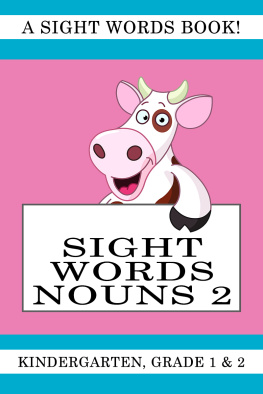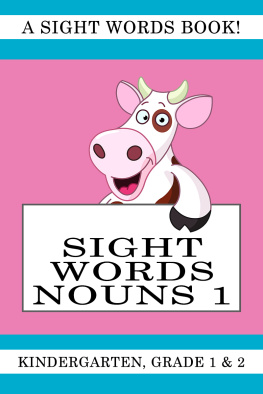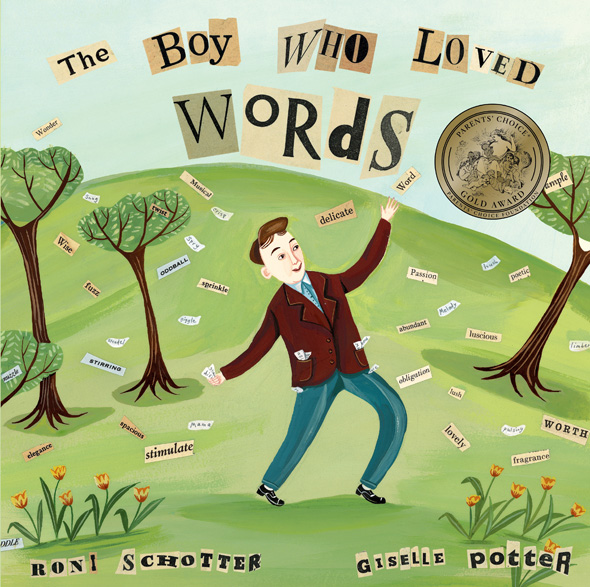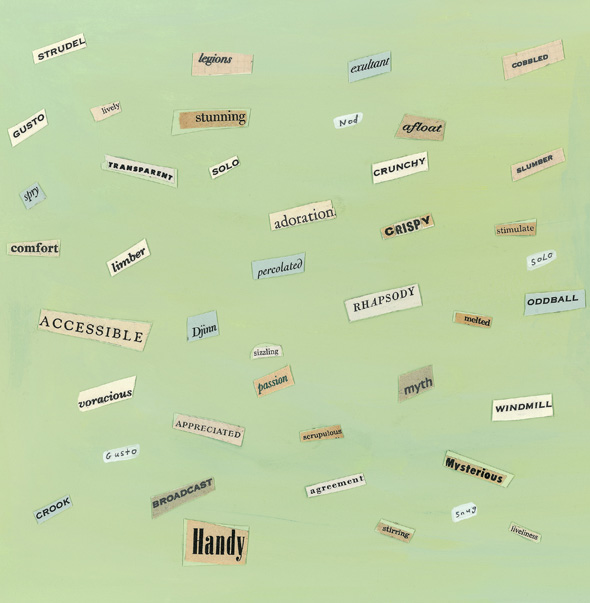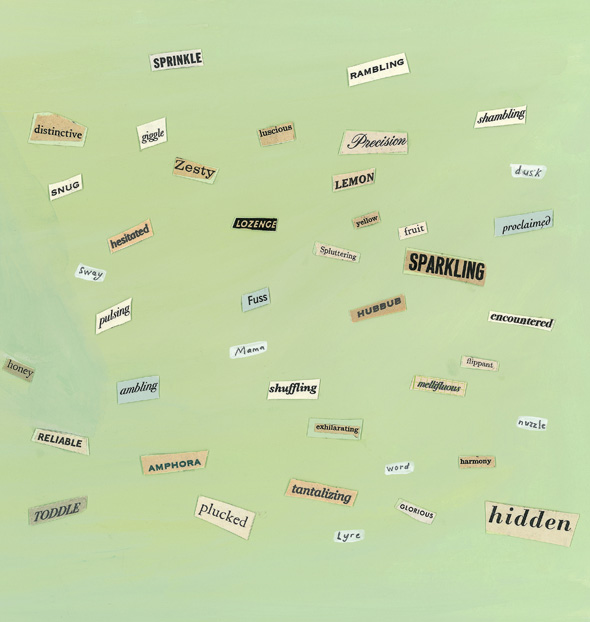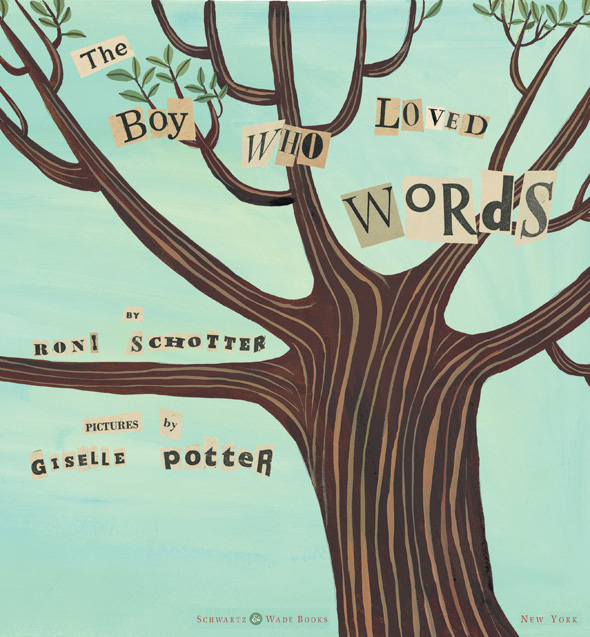This is a work of fiction. Names, characters, places, and incidents either are the product of the authors imagination or are used fictitiously. Any resemblance to actual persons, living or dead, events, or locales is entirely coincidental.
All rights reserved.
Published in the United States by Schwartz & Wade Books, an imprint of Random House Childrens Books, a division of Random House, Inc., New York.
SCHWARTZ & WADE BOOKS and colophon are trademarks of Random House, Inc.
Educators and librarians, for a variety of teaching tools, visit us at www.randomhouse.com/teachers
Schotter, Roni.
The boy who loved words / Roni Schotter ; illustrated by Giselle Potter.
Summary: Selig, who loves words and copies them on pieces of paper that he carries with him, goes on a trip to discover his purpose.
ISBN 0-375-83601-2 (alk. paper) ISBN 0-375-93601-7 (lib. bdg.)
[1. Language and languagesFiction. 2. Self-actualization (Psychology)Fiction.]
I. Potter, Giselle, ill. II. Title.
PZ7.S3765 Boy 2006
[E]dc22
2005010850
The illustrations for this book are rendered in pencil, ink, gouache, gesso, watercolor, and collage.
For Pia, collecting and saying new words every day G.P.
A N OTE A BOUT W ORDSWORTHS W ONDERFUL W ORDS
In the back of this eBook is a glossary containing some of Wordsworths wonderful wordswords he loves the sound, the taste, and the meaning of. Some of them may be new to you. If you too find them wonderful, perhaps they may become your favorites as well. Who can tell? Maybe youll start your own collection of wonderful words.R.S.

T here are, in this world, people who are born collectors. Some collect shells or stones. Others, feathers. Some have even been known to collect tiny teaspoons. Such a one was Selig. He was a collector of words.

Selig loved everything about wordsthe sound of them in his ears (tintinnabulating!), the taste of them on his tongue (tantalizing!), the thought of them when they percolated in his brain (stirring!), and, most especially, the feel of them when they moved his heart (Mama!).
Whenever Selig heard a word he liked, hed shout it loud, jot it down on a slip of paper, then stuff it into his pocket to save. Such a collector! Seligs pockets positively brimmed with words. He stuffed new ones inside his shirt, down his socks, up his sleeves, under his hat.
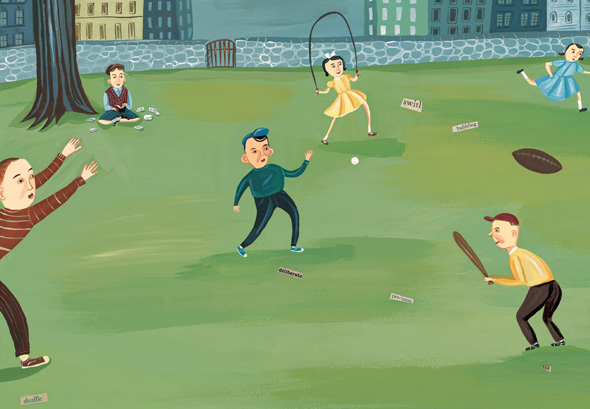
While other children busied themselves with bats, nets, and all manner of balls, Selig stayed on the outskirts, always on the peripherylistening and collecting delicious words.
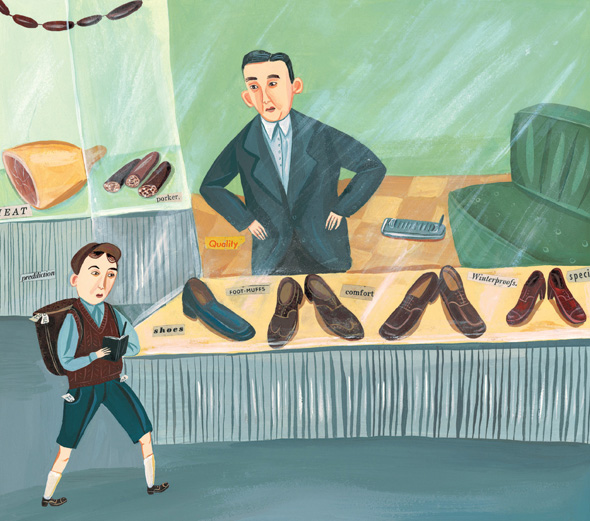
His father, a practical man who sold sturdy shoes for a living, wondered what good could possibly come from a son with such a strange predilection.
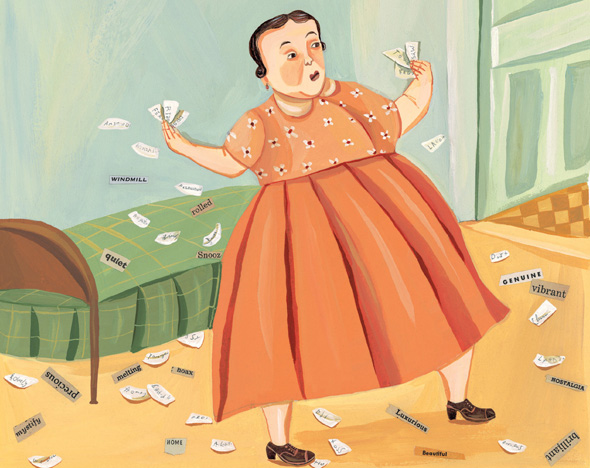
His mother, a large, lovely woman from the Old Country, worriedcould her beautiful boy find happiness? Waving her arms in the air, she was a windmill of worry.
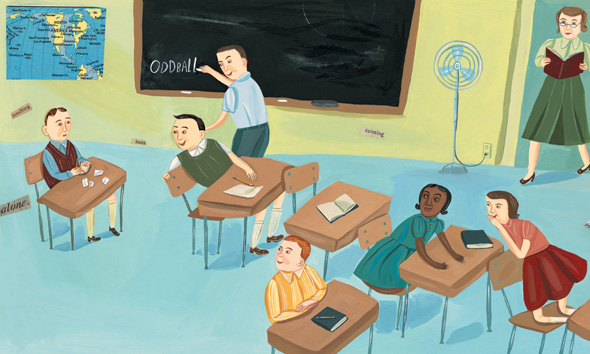
As time went on, people began calling Selig by a new name: Wordsworth. Hey, Wordsworth, kids would giggle. Heres a word for your collectionoddball!
Oddball! Selig repeated. The silly-sounding word should have made him giggle, but instead it made him lonely.
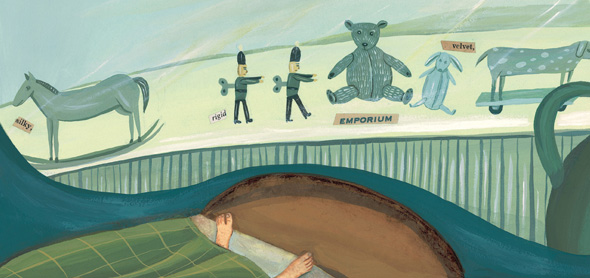
One night, Selig had a dream.
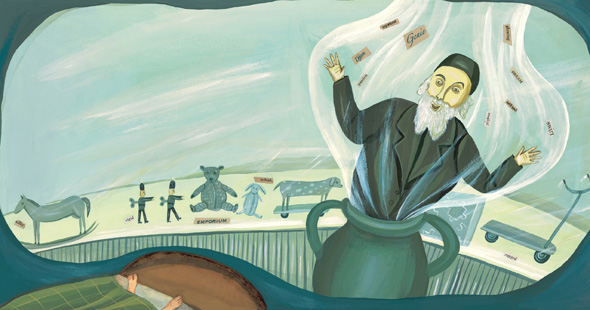
Alone, in front of an unusual emporium, he encountered an oversized amphora. Curious, Selig gave it a tap. Swoooooooosh! Out popped a swarthy, swirling man. Djinn! Selig exclaimed, then, Genie! he shouted, enjoying the tang of tasty new words.
Vhat you vant? the Genie asked. A vish?
Such strange and savory sounds! Such an offer! At a loss for words, Selig suddenly knew his vishit was for an answer. Is it true, am I really an oddball?
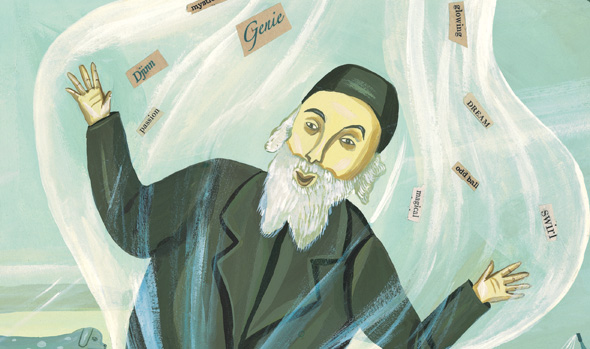
Oddball? Feh! You are Voidsvoith, a lover of voids. Already you have vhat people search their whole life foran enthusiasm, a passion. Vhat you need now is a poipose, a mission. Then, without a word of warning, the Genie disappeared.
Selig awakened from his dream. Lickety-split, he packed a rucksack with a pillow and blanket, apples, honey, cream soda, and his entire collection of words. He knew exactly what he had to do. Selig took to the road, determined to find his purpose.
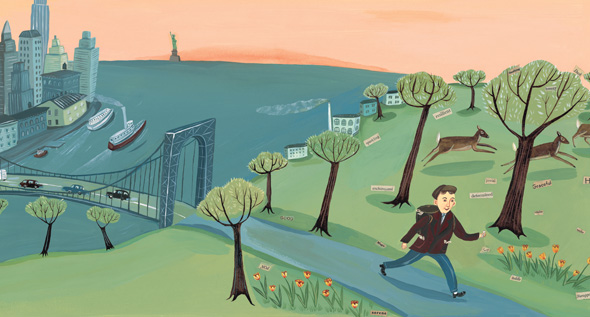
On the trail of his purpose, Seligs senses sharpened. He noted the nod and toddle of tulips in the wind; the sway and swagger of tree branches; how, at evening, the light dimmed to announce the arrival of twilight and stars. Dusk, Selig noted, adding that short and enchanting word to his collection.





